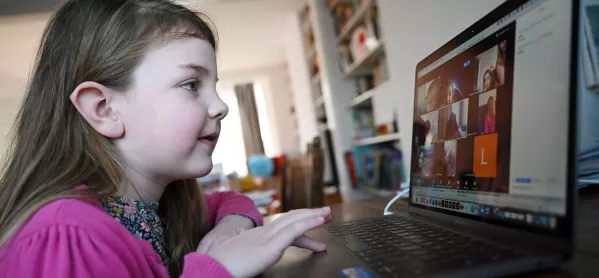Our school is now well into the second month of closure, and with it looking like things might not change for a while, we are preparing to teach online for the foreseeable.
Over these weeks I have learned some things that work better than others, and I am continually looking for ways to improve my own work for the benefit of my classes.
It is important to experiment with new apps, new ways of showing your teaching online and reaching out to online communities who can provide a wealth of advice in your specific areas of school.
Coronavirus: Teaching primary school pupils remotely
These are some good basics that I have discovered work well with younger learners.
1. Establish habits for online learning
If you haven’t already, it is important to try and get pupils into the mindset that this as a new type of classroom that provides a new learning environment for your class - not something that will be the same as what they are used to.
Therefore, we should think of some new classroom rules or behaviours to adhere to. Ask your class to draft up their own top tips for online learning and add some of your own - eg, making sure that children are always sat at a table for live lessons, if you have those.
This can help to let the children know that you still want them to be interested and motivated to produce good ideas for their learning. It could also be a good time to remind them to stop working outside of school hours, so they don’t become fatigued.
2. Set your time for marking
You may have already noticed that you can be swamped with different pieces of work throughout the day, sometimes at unusual hours.
This might lead to a constant checking of emails or online classrooms, which can drive you crazy over time. Instead, make a point to check for work in intervals, and mark as appropriate.
Although, beware - the more you space out your “checking intervals”, the greater the amount will be. I find that three solid marking sessions a day have worked well in my situation.
3. Prepare in advance
There is a temptation to leave things until the morning to prepare, as we would also think to photocopy things in the morning at school. However, just as the photocopier can break, we can also find problems with the internet.
Try to schedule your emails or activities on online platforms ahead of time, or find a way to organise your resources on your computer.
If you’re not sure, search the internet for ways to schedule ahead without it being visible to students until that time. It also leaves you with more time in the morning to get into the correct frame of mind for teaching and prepare a coffee!
4. Share with colleagues
There are ways to help with less topic-specific activities, such as PSHE or phonics. We have found a great way to do this is to create groups of activities and share them across classes. This could be taking a phase of phonics each, a week of PSHE themes or something else that can be shared across year groups.
This can also help if you need differentiated work to send to the children, as you can check to see what the year group below has been up to.
5. Keep students connected
Not all students will complete every activity, and some students will choose carefully their favourite activities while ignoring others. This is to be expected, but if you find children beginning to slip off the radar it’s worth checking in with them.
They may have done something practical at home that they would like to share with you but also they may need your support in what is a difficult time for us all.
Children may be affected by the health of their families or the stress of the situation overall.
Some parents also may feel unsure if they are doing the right thing at home with their child, and hearing a teacher offer them support or just an ear can help.
It helps for them to know that they are not alone through this, and we are there for them, too.
Alice Reid is a teacher working in Italy


